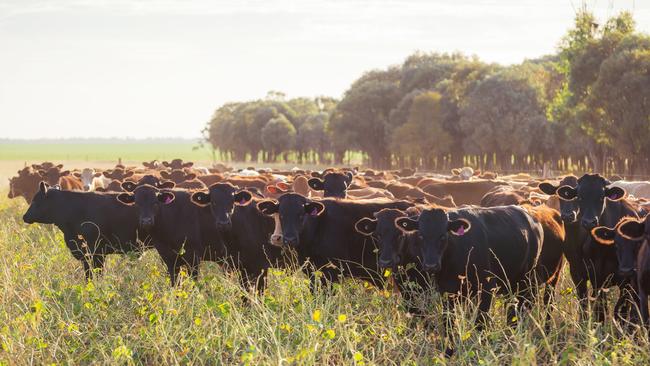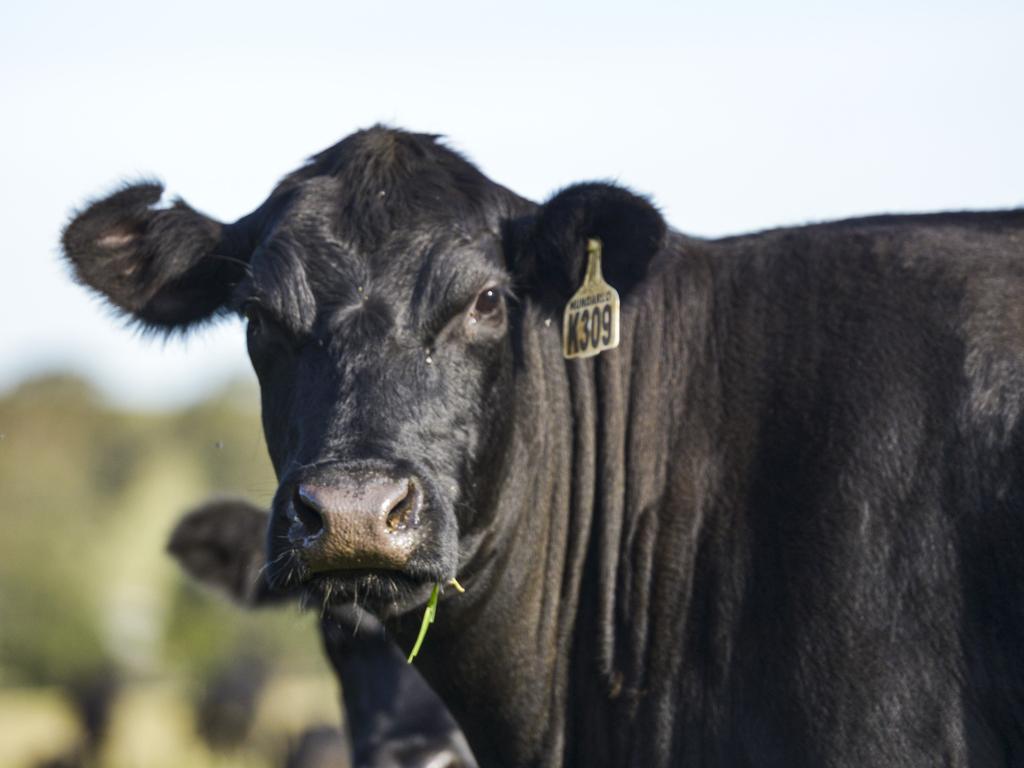Australian Agricultural Company can sidestep China beef ban
Australian Agricultural Company says it can divert beef destined for China elsewhere, after Beijing’s ban on four Queensland abattoirs.

Australia’s biggest beef producer, Australian Agricultural Company, is diverting about 60 per cent of meat destined for China to South Korea, and is looking to sell more to the US, after China banned exports from four abattoirs in Queensland.
AACo sells about 15 per cent of its meat to China and chief executive Hugh Killen said the company aimed to maintain that percentage as part of its diversification strategy and shield itself from trade tensions like the stoush that has erupted between the Morrison government and Beijing.
Mr Killen said China’s decision to temporarily suspend exports from four Queensland abattoirs had hit around 60 per cent of AACo’s $34m sales to China.
But he said its biggest market in Asia, South Korea, had snapped the extra meat that was originally destined to China.
“We still have access to China through the plants that are still operational. The product was to be sent to China can be rediverted and markets such as Korea can take those products,” Mr Killen said.
“China, while a $34m market, it’s still only 10-15 per cent of our production and we purposely try to keep it around that level. We are generally diversified across international markets.
“Korea is a really important market for AACo and has been for 15 years. It is a really mature, highly valued supply chain on both sides of the partnership. It is a huge beef consuming nation and our brand is a household name there.”
Mr Killen’s comments came as AACo swung back into profit, delivering a $31.3m net profit in the 12 months to March 31 versus a $180m loss the previous year.
South Korea generated $69m in sales for the year. This compares with $34m in China, $10m in Hong Kong and $7m in Taiwan. Across Asia revenue grew 19 per cent, with wagyu beef accounting for 66 per cent of all sales.
Globally, AACo’s wagyu meat sales surged 19.7 per cent. The US was one of the company’s fastest growing markets, with revenue rising 34 per cent and accounting for 7 per cent of all wagyu sales.
Mr Killen said AACo was looking to further strengthen trade with the US, following China’s temporary suspension on the four Queensland abattoirs. He pointed to a screenshot on US retailer Goldbelly’s website, which was advertising eight AACo wagyu steaks for a combined $US539 ($823.16).
“We can plan out our approach in the US city by city and some of those cities are as big as some of the markets we sell to in total.
“With the China production we do, about half of what we do in total is trim and the US is a very big trim market as well. Trim is also in short supply in the US at the moment because of ironically the issues they have with their own processing facilities as a result of COVID-19.
“So we will be looking to pivot from one market to another.”
Deutsche Bank analysts put in perspective China’s beef ban as well as the 80 per cent punitive tariffs Beijing imposed on Australian barley on Monday night. It takes 40 days of selling iron ore to China to match its annual Australian beef trade. Meanwhile, it takes three days of iron ore shipments to match the value of annual barley trade with China.
The turnaround in AACo’s profitability came after the company was forced to write off $45.6m in livestock from the Gulf flood the previous year. The company also stripped out $31m in operating expenditure.
Meanwhile market values of its cattle increased 12 per cent and the carrying value of its pastoral properties also increased by 9 per cent.
Total meat sales, however, dipped 6.7 per cent to $229.6m, while cattle sales eased 11.3 per cent to $104.5m.
“The past year has not been without its challenges. We had to rebuild our Gulf infrastructure after the flood event in February 2019 while at the same time, continue to battle crippling drought across many of our properties,” Mr Killen said.
“We achieved both while protecting our core breeding herd to ensure an uninterrupted supply chain.”
AACo did not give any financial guidance, saying the impact from the coronavirus pandemic could not be “reasonably estimated at this stage”.
“We do know that sustainable, healthy, high quality beef from supply chains that offer paddock to plate provenance for families and diners the world over is in demand,” Mr Killen said.
“AACo remains well placed to respond to this demand in whichever way it manifests itself as we emerge from the COVID-19 pandemic.”
Its shares jumped 3.3 per cent to $1.11 on Wednesday. The company will not pay an interim dividend.






To join the conversation, please log in. Don't have an account? Register
Join the conversation, you are commenting as Logout